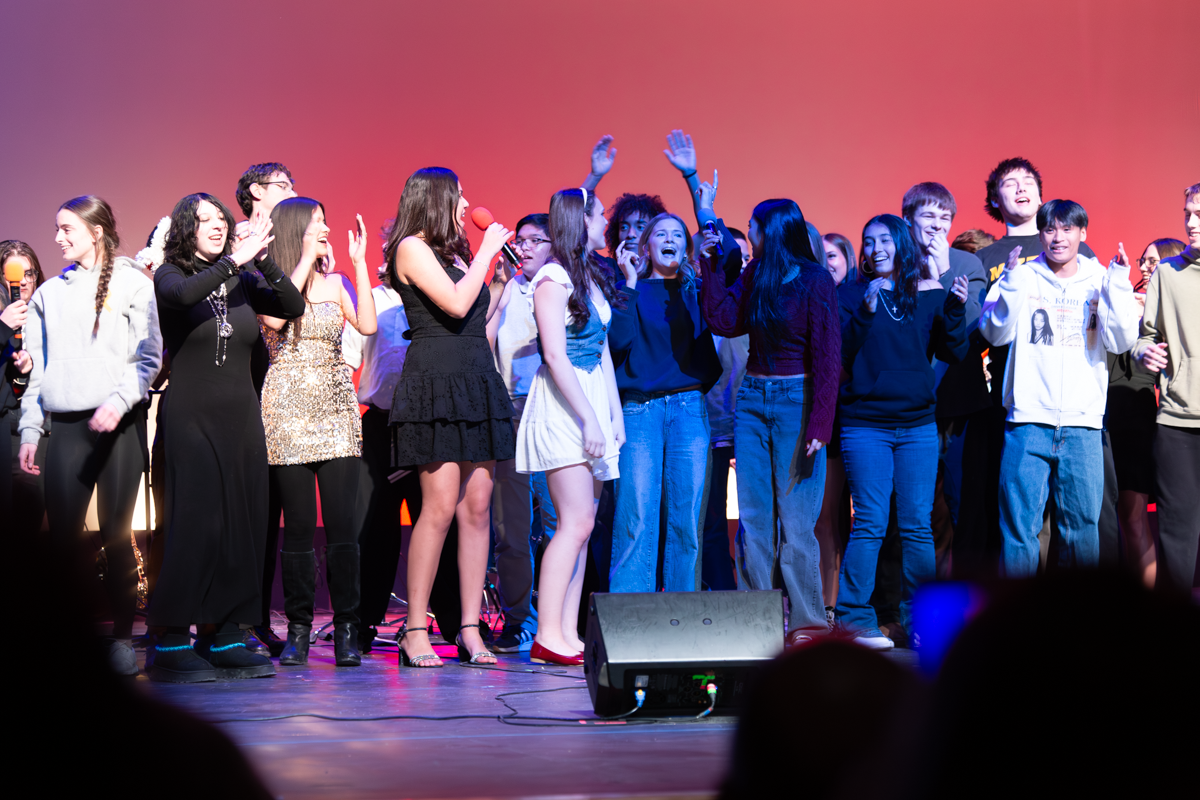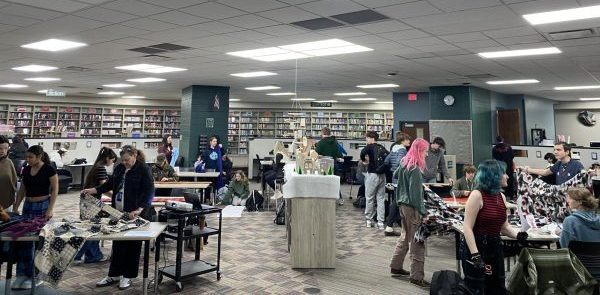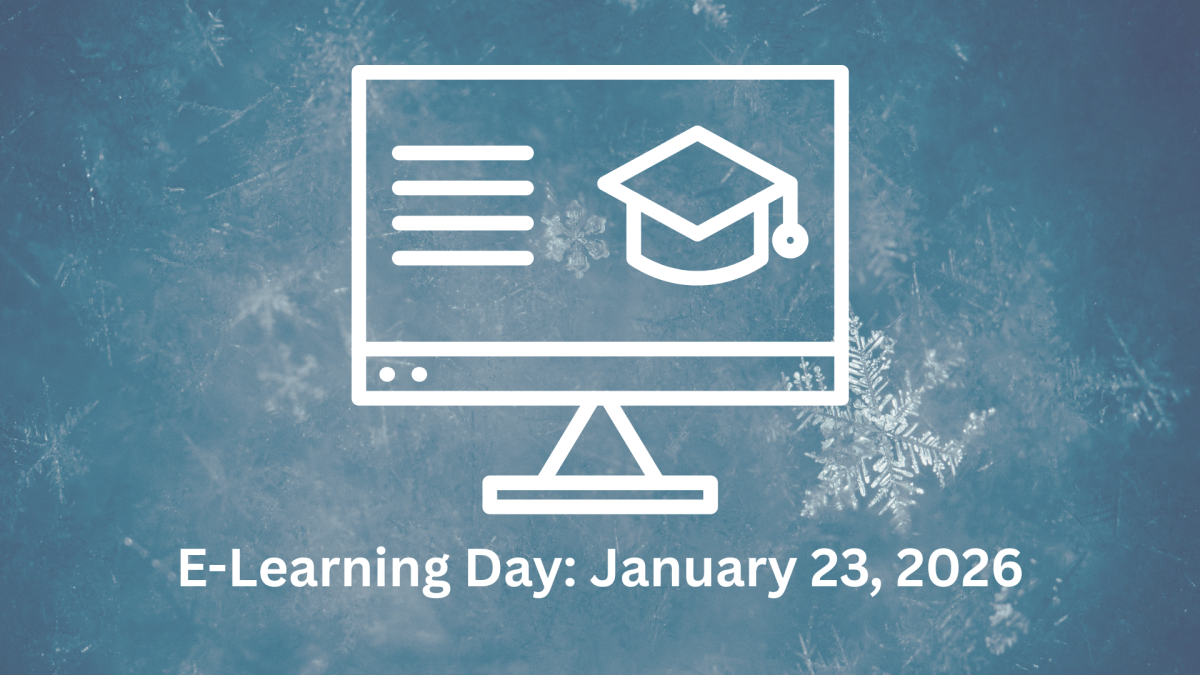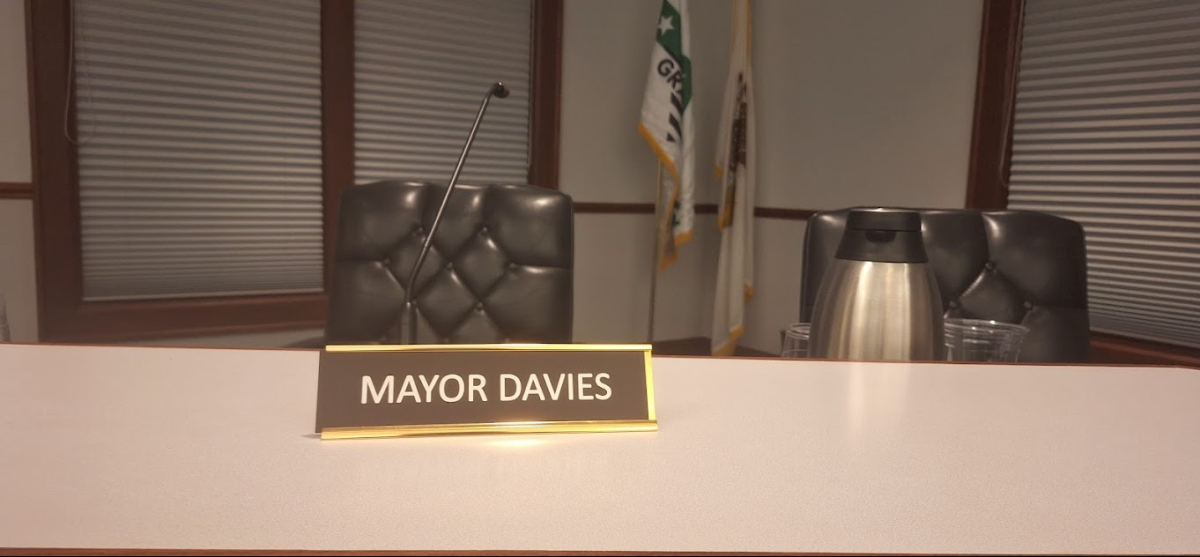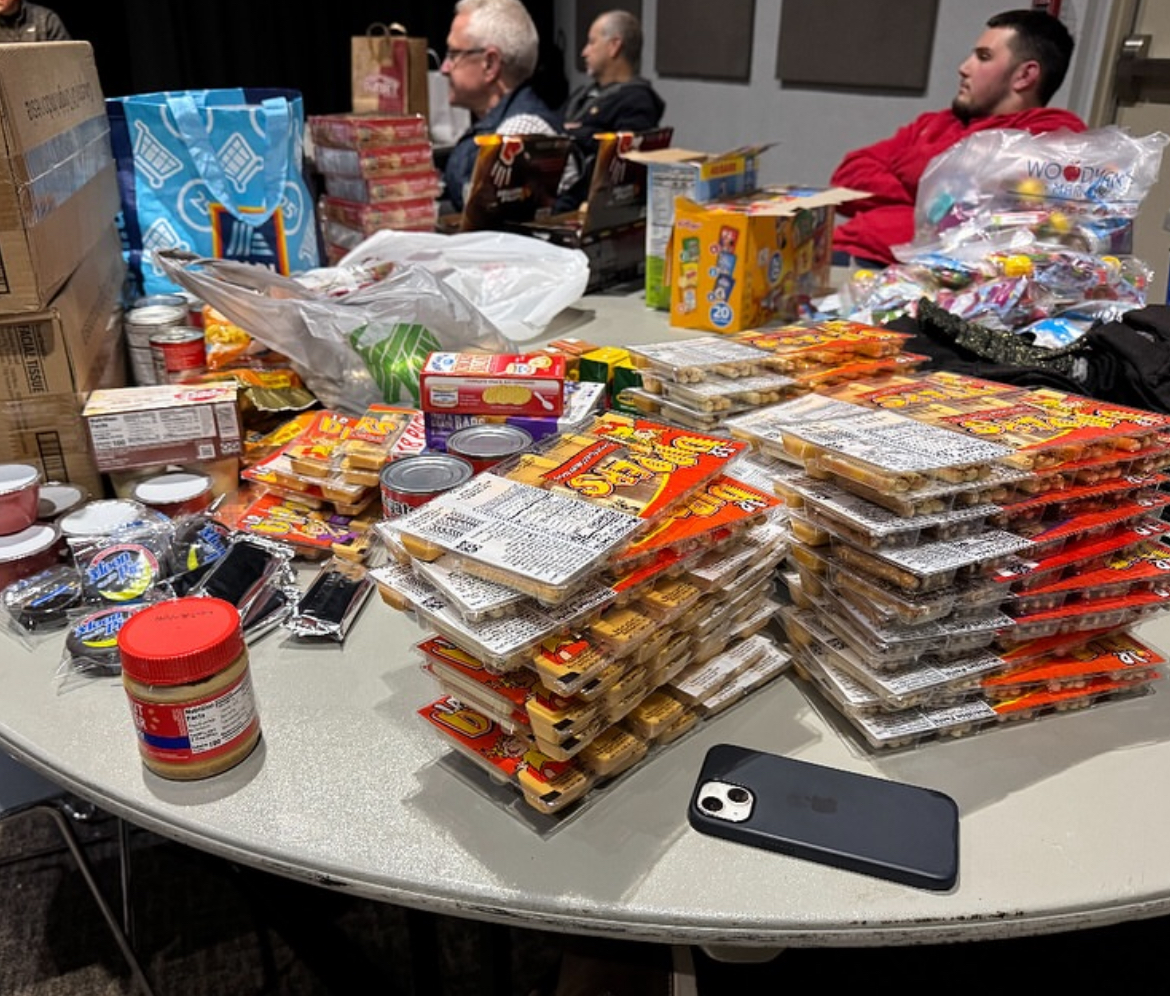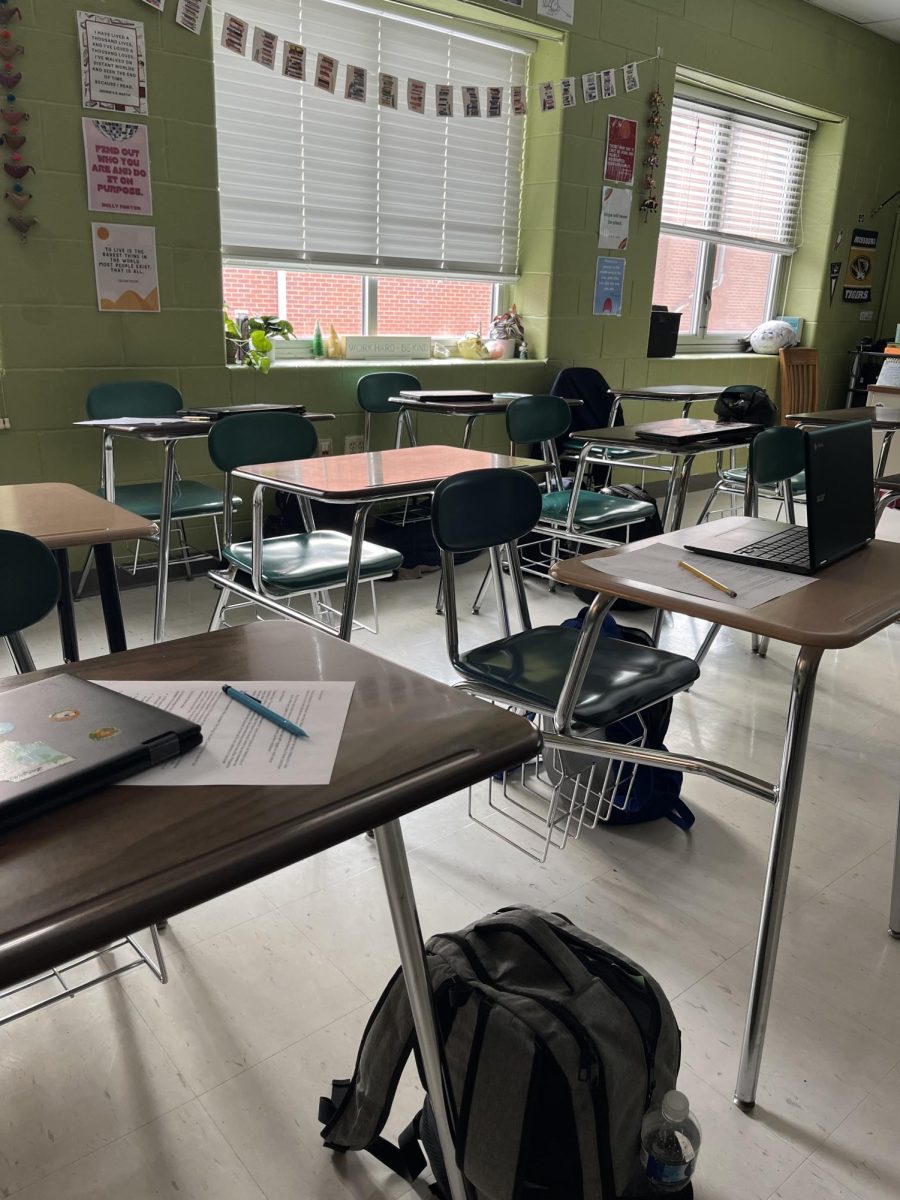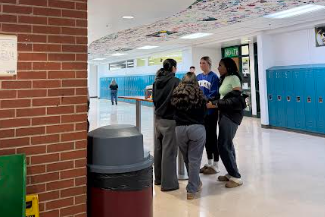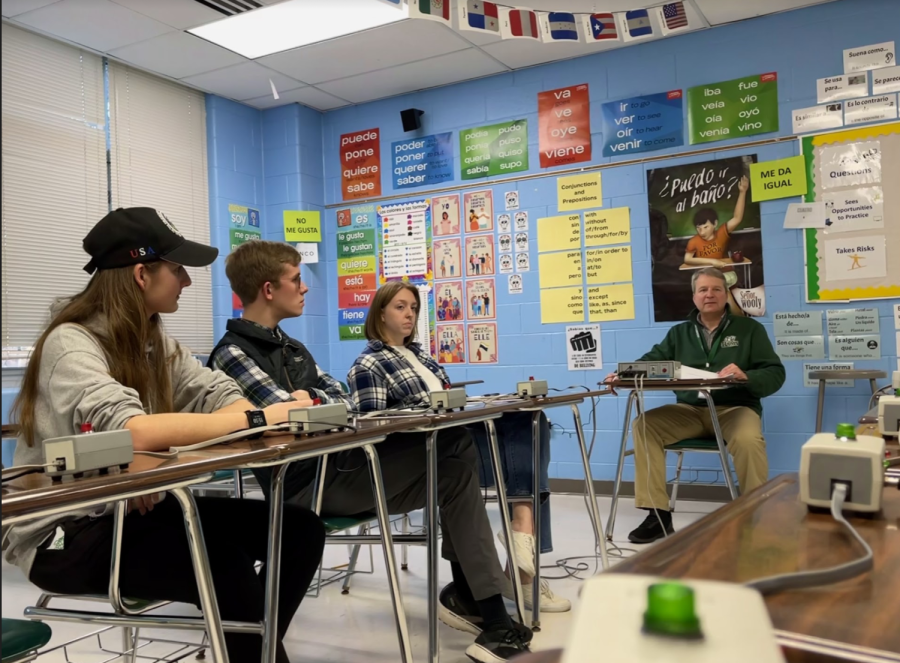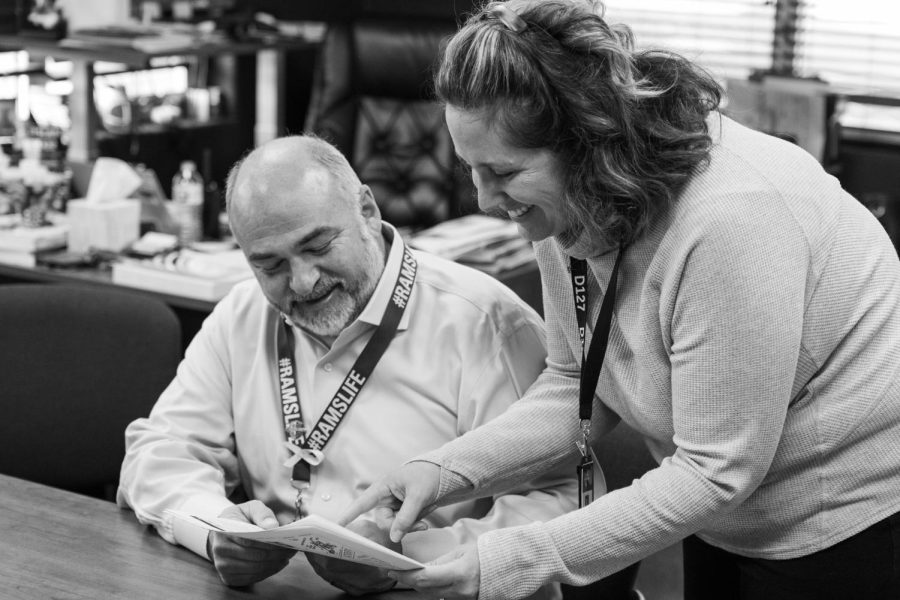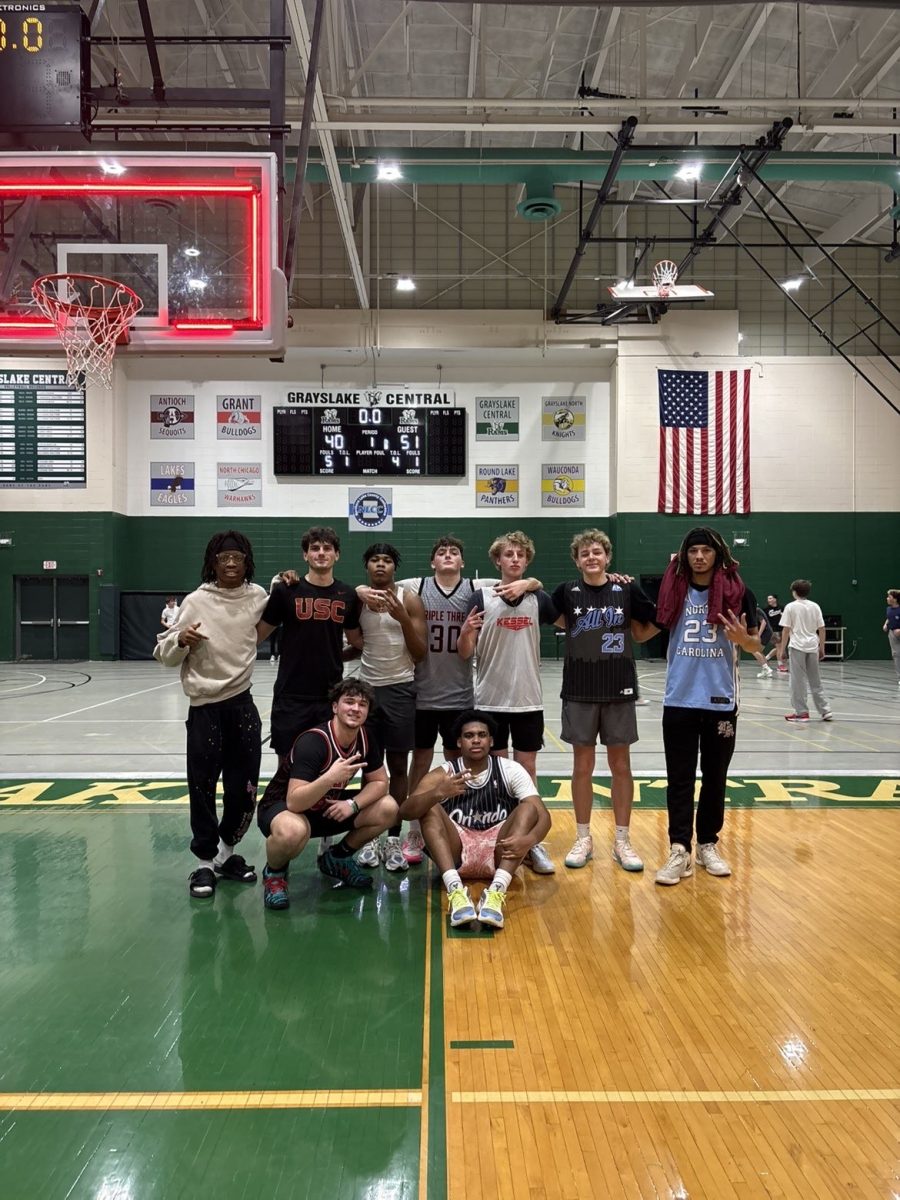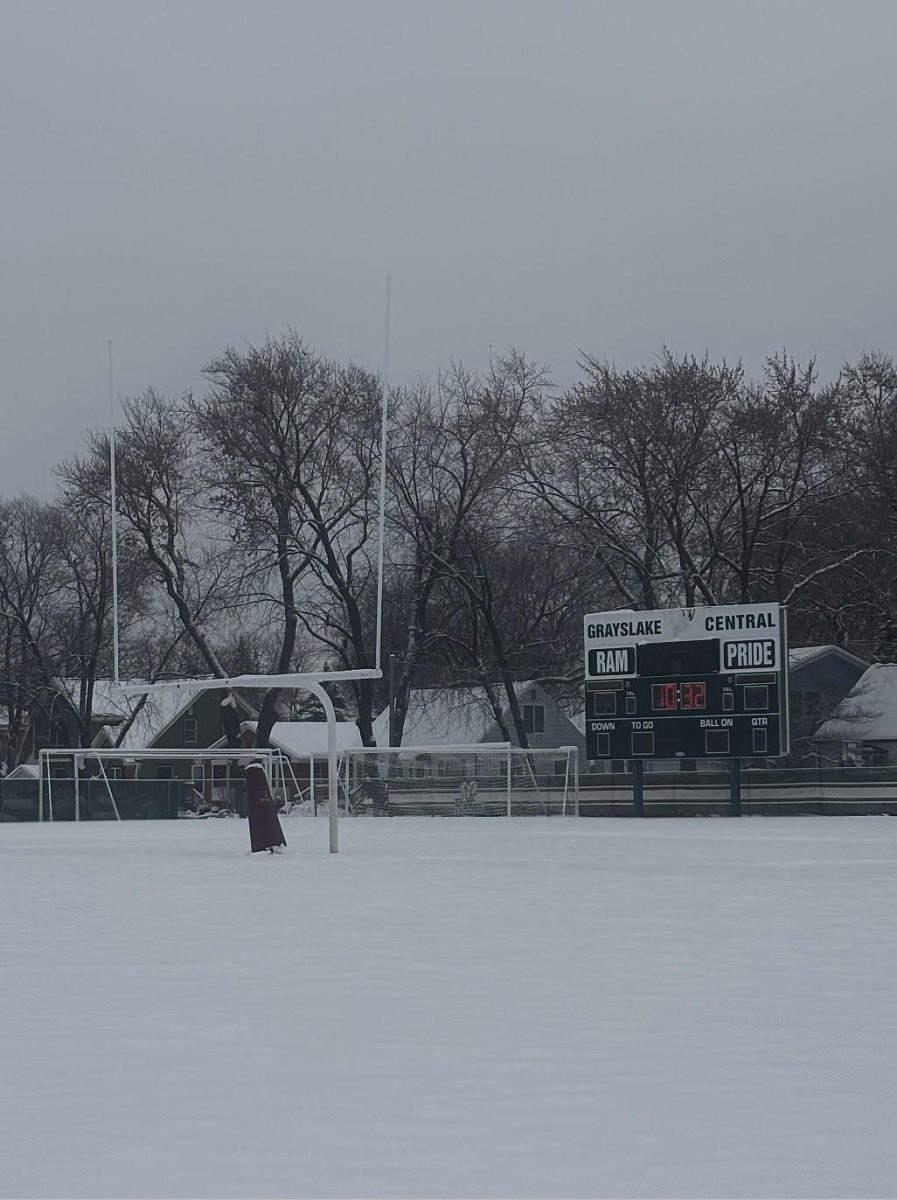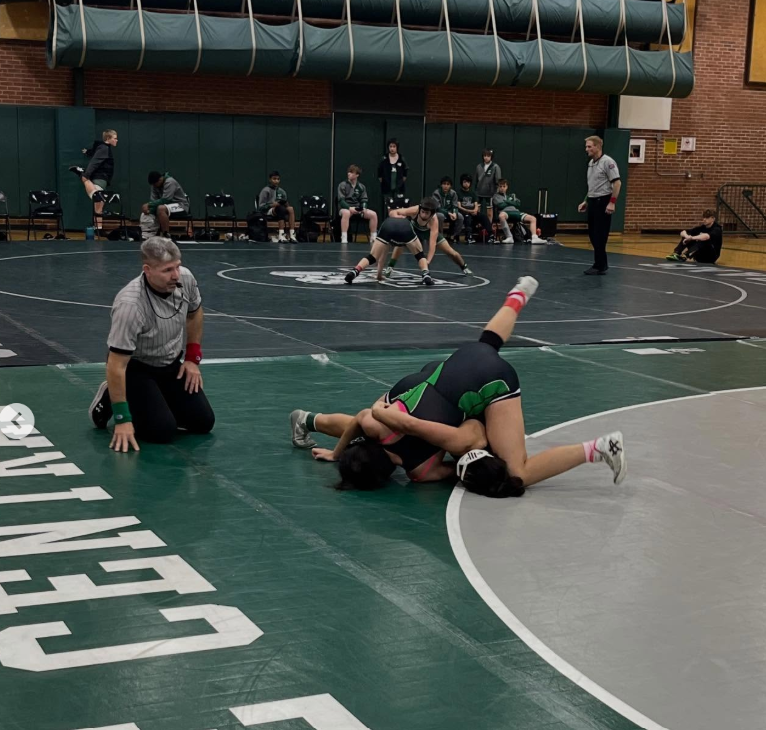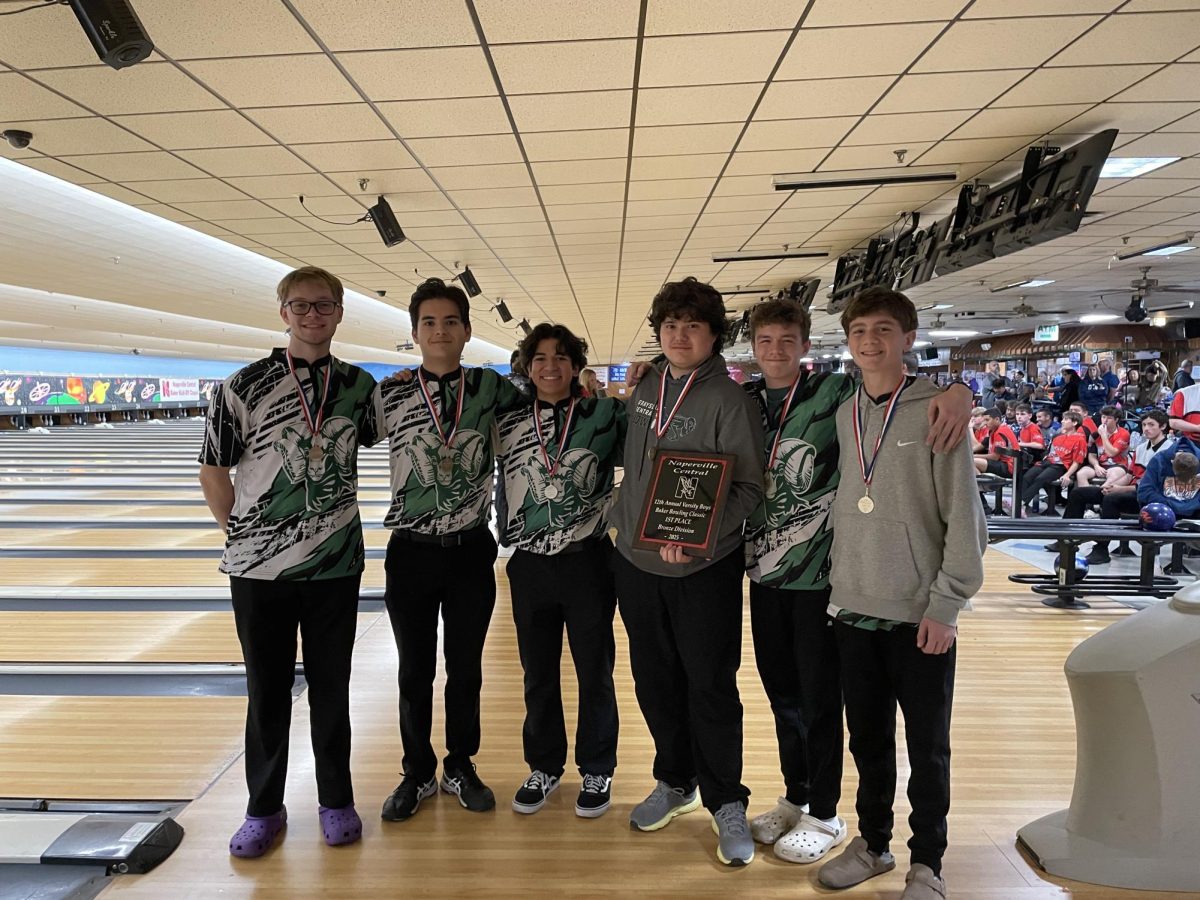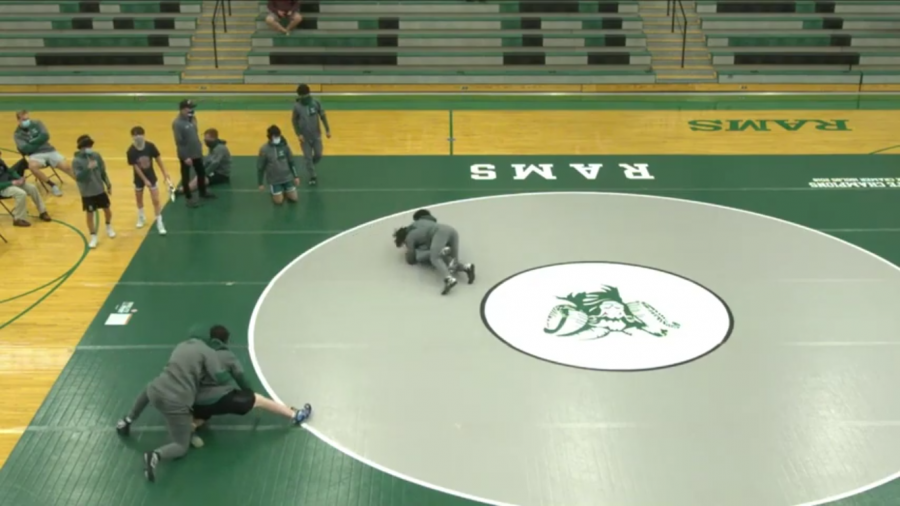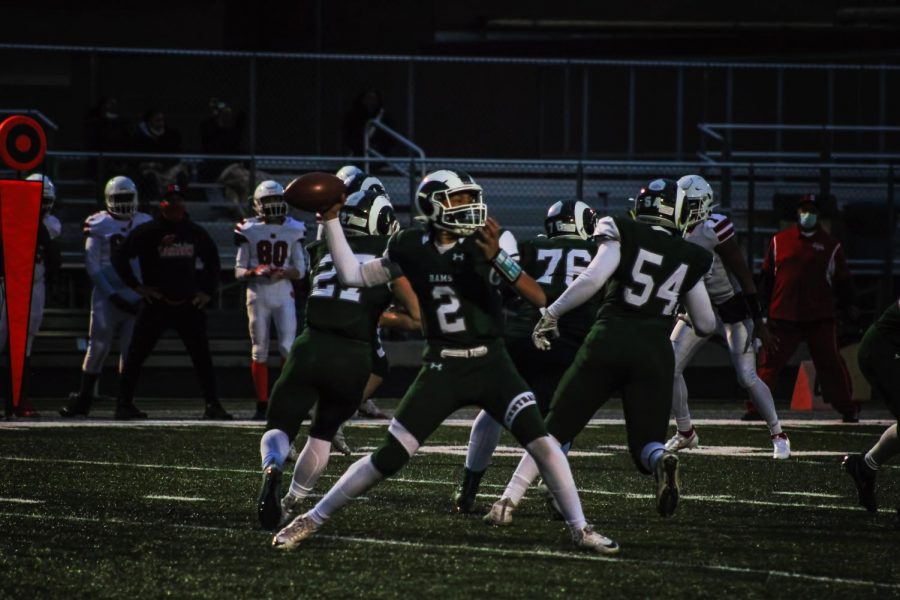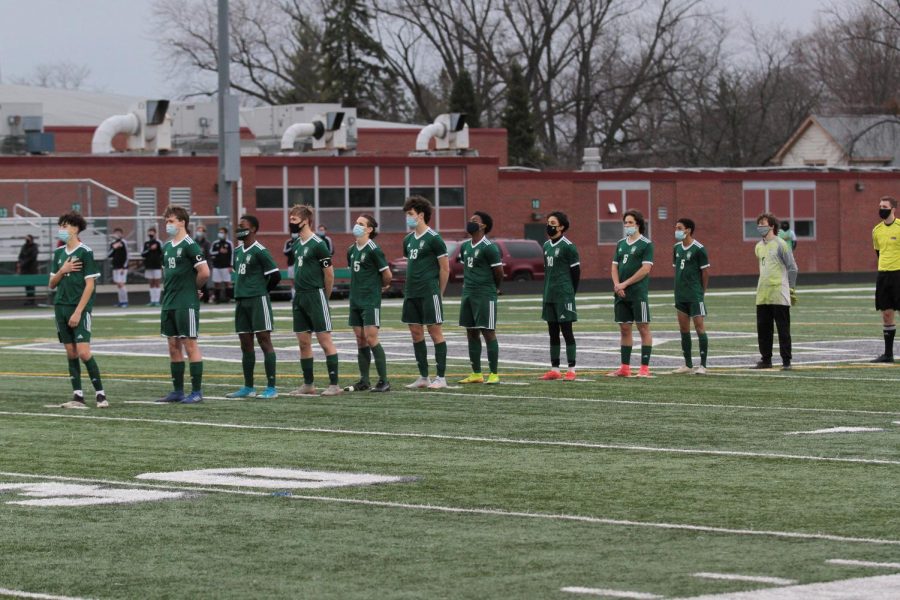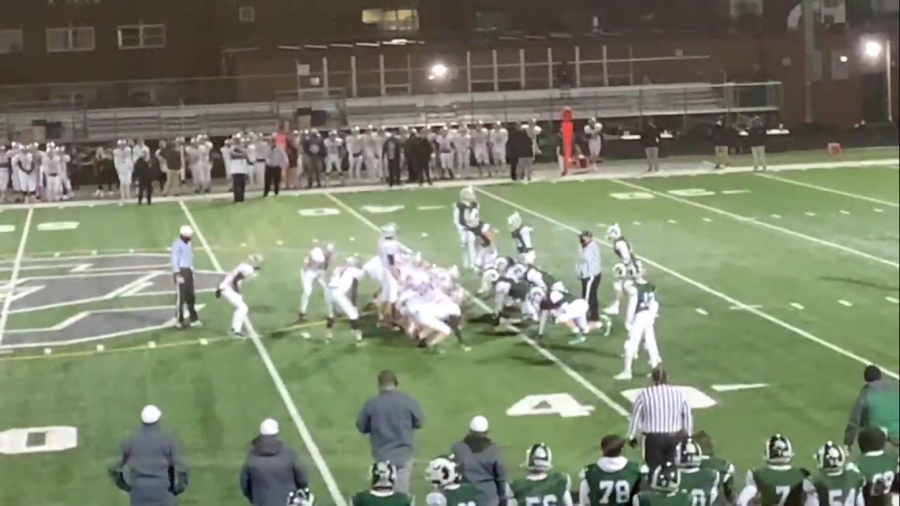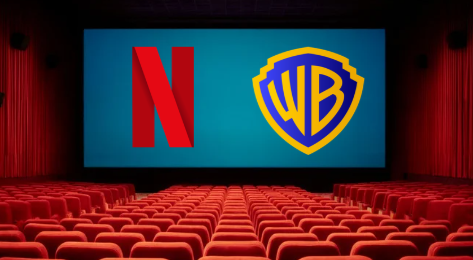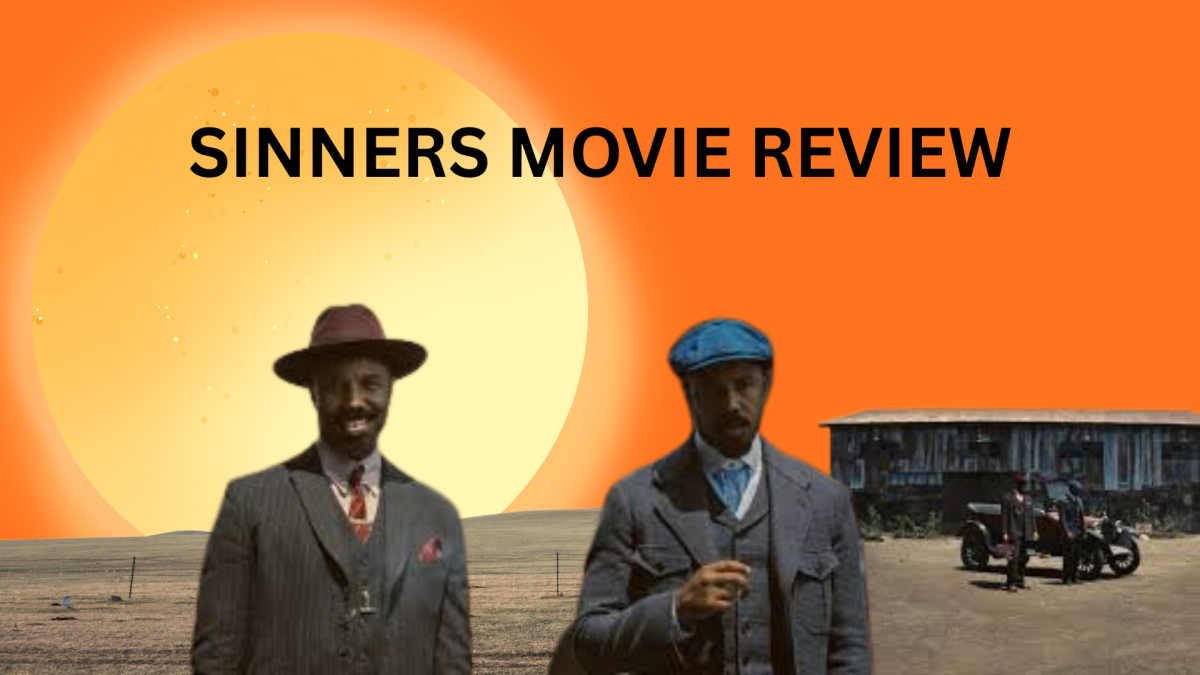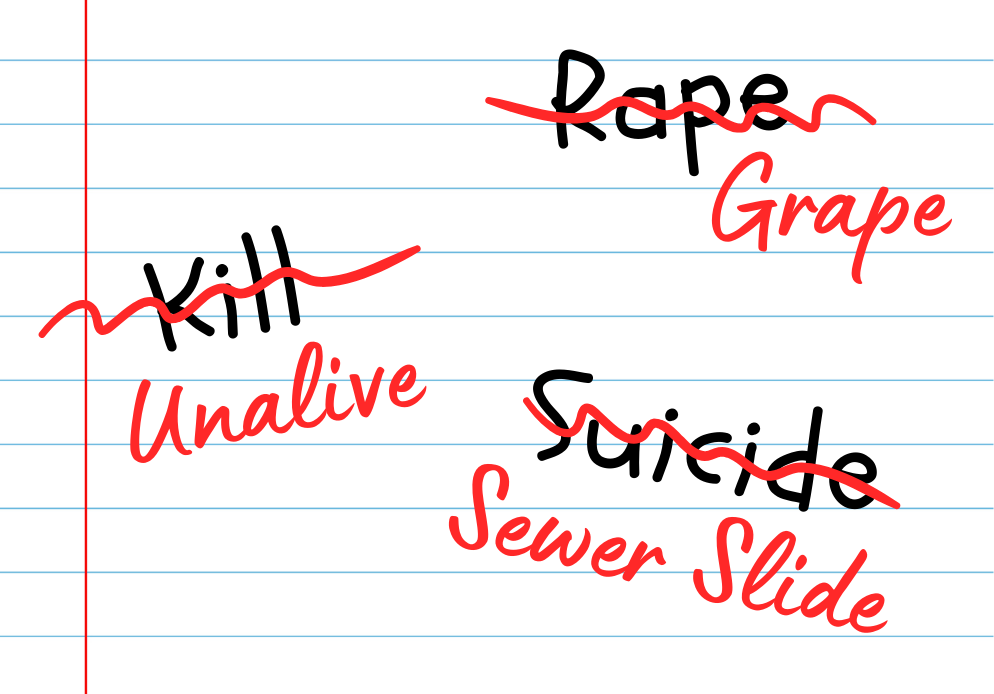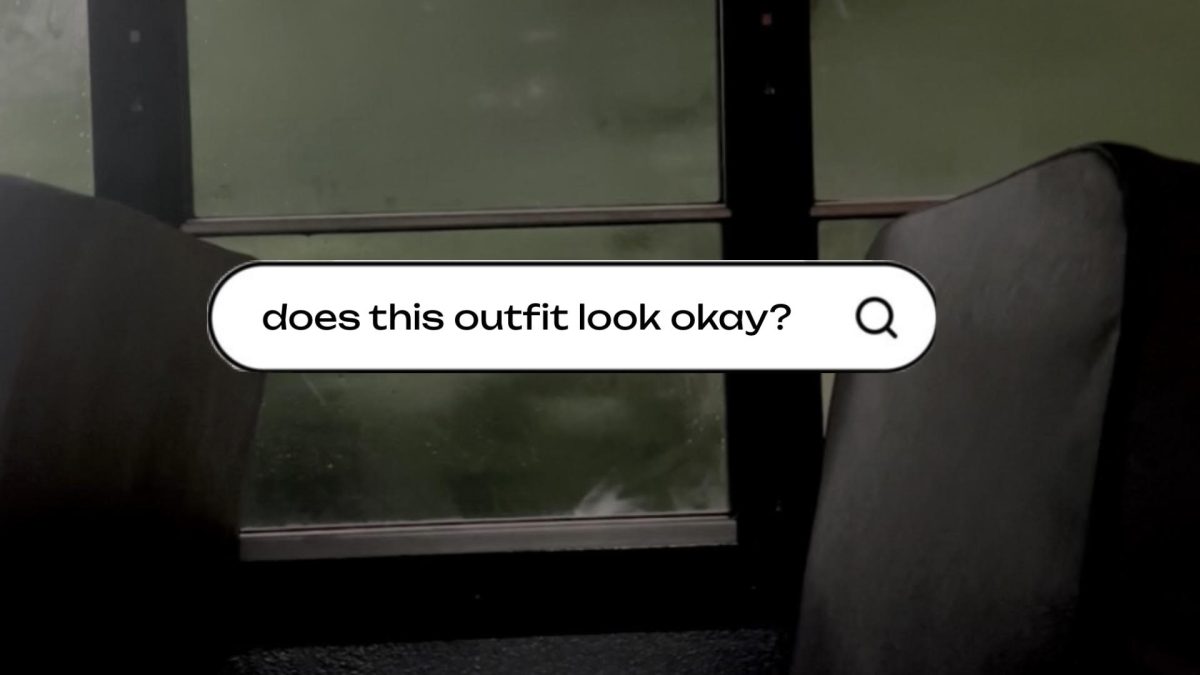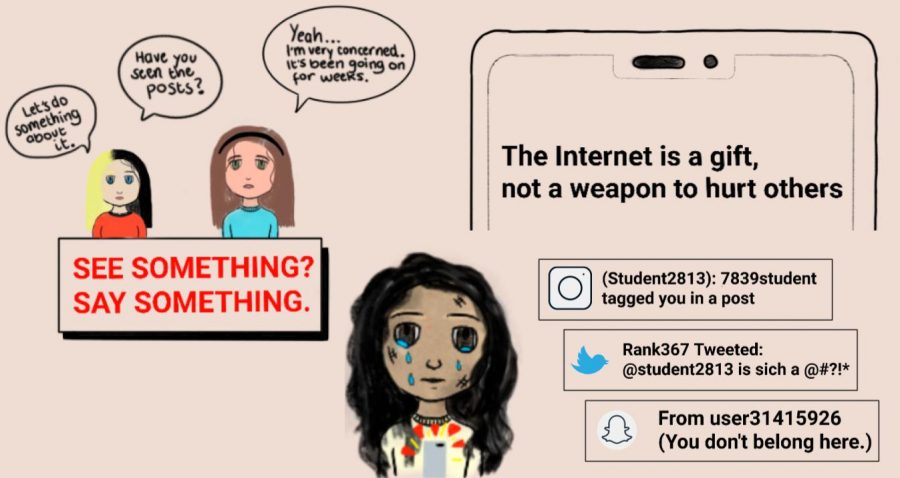Local 2020 elections define politics
Why are local elections so important?
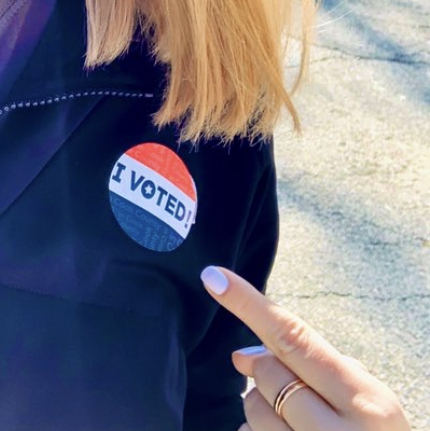
“I Voted!” stickers from voting in the elections are a symbol of pride for voters.
December 16, 2020
In the hustle and bustle of the 2020 election, it can be easy for one to forget that the presidency isn’t the only spot in our government up for grabs. Also on the ballot are roughly 35 local positions as well as legislature. These “Down-Ballot” or “Down-Ticket” positions are important to know how our communities are run.
“Approximately one third of all US Senate seats were up for election. All 435 US House of Representatives seats are being decided in this election. And then… at the state level, are all members of the Illinois House of Representatives and the state government,” said Glen Roeck, a goverment teacher at GCHS, “The General Assembly, all 119 state members of the House of Representatives worked for re-election and then about one third of our state Senate seats are up for election as well. And then there were other things like the fair tax amendment was on the ballot and then also at the county level. For example in Lake County, the State’s Attorney was on the ballot, and the Coroner was on the ballot as well, just to name a few,” Roeck, like many acquainted with a strong understanding of our nation’s election process, is aware 2020 has been a unique campaign year.
“The voter turnout was 69.37%. That’s higher than what we would consider normal. However, typically more voters come in during presidential elections every four years compared to midterm elections… two years from now it’s likely that the turnout will be lower, but if you were to compare this 69.37% in Lake County to four years ago when Trump was elected, the number I suspect is higher this year than four years ago now, is that because of mail in ballots? It’s hard to tell,” said Roeck.
Many predicted 2020 would see a “blue wave,” putting many Democratic candidates in office.
“Some people were hoping the Democrats were going to see the blue wave… some thought that, because with so many people dissatisfied with Trump in office, they were thinking that more Democrats would be elected to the US House, where they didn’t really see that blue wave in the House, and so some Democrats are scratching their heads,” said Roeck.
While this “blue wave” was not seen in the House, it was seen in the more local aspects of Illinois’ ballot, with many incumbent Republicans being replaced by newly elected Democrat candidates.
“I think in Illinois, for example, in Lake County, the US State’s Attorney, who is the prosecutor for state crimes, was a Republican.The Coroner was also Republican. Both of them were incumbents… Typically, incumbents have an advantage; however, they both lost to Democrats. So, I think in Lake County where seeing those people who are dissatisfied both Trump and the Republican party are expressing that by voting in a Democrat State’s Attorney and Democrat Coroner,” said Roeck.
One of these local candidates is State Coroner Jennifer Banek. Banek explains the role of her office and what makes it so important.
“The job’s main goals to determine [the] cause of death and manner of death… We do have a forensic pathologist, that we have a full time. Now, here in the Coroner’s office, we conduct autopsies… we also… coordinate with hospitals and funerals in the area… to facilitate getting loved ones to and from those places,” Banek explains. “The job of the Coroner is to look at preventable deaths…So we’ve got COVID, and we’ve got an opioid epidemic that are really on the forefront of people’s minds. And so, we need to track that data, such that we become part of that story,” said Banek.
As the office of Coroner was on the ballot for the 2020 election, Banek had to undergo all of the trials and tribulations of running for public office. One of these trials is fundraising.
“So I was a trustee on the library board. So, no it’s not my first time running…You become really savvy to determining and figuring out a message. You also then need to determine the venue in which you’re going to deliver that message and you certainly spend some time thinking about the cost. So the three different social media platforms on Twitter, on Instagram and on Facebook…and I will say that Facebook advertising is really a great way to get your message out… to better get to the audience you want,” said Banek.
Having been elected into office, Banek says the transition has had its fair share of challenges.
“This is an interesting time… And so, it’s a little bit of a challenging time because you’re trying to get to meet folks, and, potentially there are people that you just ran against and you’re looking to be consistent. So Lake County, you’re hoping that everybody cooperates and gives you the information that you need on day one, so you can hit the ground running,” Banek said, “There was no time to sit back and put your feet up really after the election and get started, because you’re doing a lot of thinking and how you’re going to organize things and get into office.”
While Banek was elected into office, much more than just a position was on the ballot. In Lake County, voters were asked to decide if the proposed Graduated Income Tax Amendment would pass.
While something like the Graduated Income Tax Amendment is admittedly hard to fully understand, GCHS economics teacher Francesca Bevente explains the goals of the amendment.
“The… tax amendment that was on the ballot this year was basically an amendment that was proposed to the Illinois constitution that would allow for the possibility of having a progressive income tax in Illinois… What that basically means is that higher income tax rates would be placed on higher-income earners in the state. And so, long story short, Illinois leaders felt like this would be more fair than the current system that we have, which is a flat tax system meaning everybody gets taxed the same amount,“ Bevente said.
While this amendment did not pass, it’s still important to recognize the role down ballots play in our government. Banek shared what she feels make these frequently less thought about aspects of our elections so special.
“I absolutely feel that it’s your civic duty and that you can’t complain if you don’t vote. General Elections are really important; they’re certainly at the top of the minds of voters. That’s important, by all means, but I would encourage people to look at everything on their ballots beforehand so they know what’s on their ballot. And then I would encourage you to continue to develop that voting muscle by looking up those down ballot races as well and looking at the people. While the people at the top of the ballot are usually the candidates you feel you know, you’re unlikely to get a visit from Joe Biden. However, if you are voting for your county coroner, or your library board trustees, those folks are much more approachable and easy to connect with, so you can probably meet them for a cup of coffee, and see why you should or should not vote for that candidate,” said Banek.

